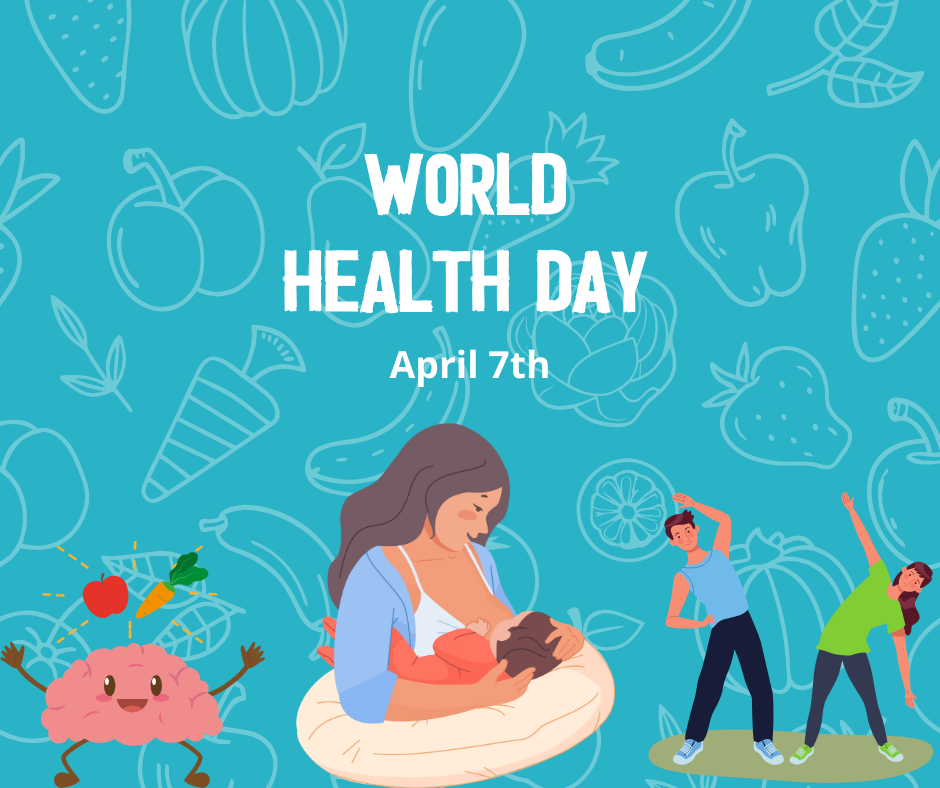 April 7 is World Health Day, a date that coincides with the creation of the Pan American Health Organization (PAHO). In 2025, the theme chosen for the campaign is ‘Healthy beginnings, hopeful futures’, with a focus on reducing maternal and neonatal mortality. On this date, the Centre of Excellence against Hunger of the World Food Programme (WFP) reinforces that a healthier life starts with food.
April 7 is World Health Day, a date that coincides with the creation of the Pan American Health Organization (PAHO). In 2025, the theme chosen for the campaign is ‘Healthy beginnings, hopeful futures’, with a focus on reducing maternal and neonatal mortality. On this date, the Centre of Excellence against Hunger of the World Food Programme (WFP) reinforces that a healthier life starts with food.
Breastfeeding for at least 6 months and maintaining a healthy diet are some of the actions that help maintain the health and longevity of both mothers and babies. Ensuring that babies receive the right nutrients in the first thousand days of life is vital for brain development and proper physical growth. Despite this, in many developing countries, poverty, malnutrition and a nutrient-poor diet often lead to illness, developmental problems and even infant mortality.
According to PAHO data, breastfeeding reduces mortality by 13% up to the age of 5, prevents diarrhea and respiratory infections, reduces the risk of allergies, high cholesterol, diabetes, hypertension and obesity in adulthood, as well as protecting the mother against some types of cancer and helping with postpartum recovery.
School feeding programmes as health promotion policies
One of the most effective strategies for ensuring adequate health and nutrition from the earliest years of life are school feeding programmes. These initiatives provide balanced and nutritionally adequate meals to millions of students around the world, with positive impacts on the physical, cognitive and emotional development of children and adolescents.
In the case of Brazil, the National School Feeding Programme (PNAE) feeds around 40 million children every day with menus prepared by nutritionists and made by qualified cooks.
The WFP Centre of Excellence has been working for more than a decade supporting governments in the formulation and implementation of school meal policies, with a focus on local production, the inclusion of fresh food and food and nutrition education in public schools.
Brazil’s experience with the PNAE has served as a benchmark for countries in Africa, Asia and Latin America. By promoting healthy meals in schools, the programmes also help prevent diseases related to poor diet and reduce inequalities in access to health and education.
Health for all
In addition to mums and kids, a healthy diet combined with regular exercise brings benefits to everyone, regardless of gender or age. The recommendation is to favor fresh and minimally processed foods, as well as consuming plenty of fruit and vegetables every day and drinking plenty of water. The ideal is to avoid consuming ultra-processed foods and to reduce sugar and salt intake at mealtimes.
Chronic non-communicable diseases, such as diabetes, heart problems, cancer and respiratory diseases, continue to be among seven of the ten leading causes of death worldwide, according to PAHO. Preventive measures such as regular physical activity and a balanced diet are the key to a healthier and fuller life.




